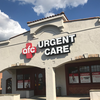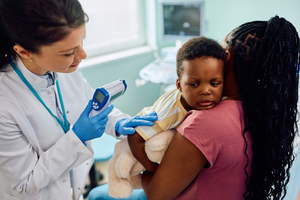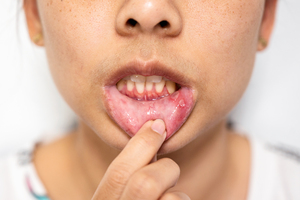Find Hepatitis test
in Philadelphia, PA.
Own a clinic? Add your location.
Help patients book appointments with you on Solv. It's free!
20 instant-book locations

AFC Urgent Care, Port Richmond
AFC Urgent Care

CityLife Health, Frankford
CityLife Health

AFC Urgent Care, Roosevelt Mall
AFC Urgent Care

AFC Urgent Care, Torresdale
AFC Urgent Care

myDoc Urgent Care, Temple University Campus
myDoc Urgent Care

CityLife Health, Cobbs Creek
CityLife Health

AFC Urgent Care, Northern Liberties
AFC Urgent Care

AFC Urgent Care, Roxborough
AFC Urgent Care

AFC Urgent Care, South Philly
AFC Urgent Care

AFC Urgent Care, Pennsauken
AFC Urgent Care

AFC Urgent Care, Narberth
AFC Urgent Care

Live Urgent Care, Bellmawr
Live Urgent Care

AFC Urgent Care, Cheltenham
AFC Urgent Care

AFC Urgent Care, Deptford
AFC Urgent Care

AFC Urgent Care, Woodbury
AFC Urgent Care

AFC Urgent Care, Cinnaminson
AFC Urgent Care

AFC Urgent Care, Conshohocken
AFC Urgent Care

AFC Urgent Care, Gloucester Township
AFC Urgent Care

Carbon Health Urgent Care, Marlton Crossing
Carbon Health Urgent Care

AFC Urgent Care, Willow Grove
AFC Urgent Care
Own a clinic? Add your location.
Help patients book appointments with you on Solv. It's free!
About Hepatitis test
Who should get tested for hepatitis?
The Centers for Disease Control and Prevention (CDC) recommends hepatitis testing for various groups. These include individuals who have been exposed to blood through needle use, health care or public safety workers with exposure to blood on the job, people with certain medical conditions, and individuals born between 1945 and 1965. Additionally, anyone who has had sexual contact with someone infected with hepatitis should get tested.
Importance of getting tested
Getting tested for hepatitis is crucial as it helps in early detection and treatment, reducing the risk of severe liver damage. It also helps prevent the spread of the disease to others. According to the CDC, many people with hepatitis do not have symptoms and do not know they are infected. Therefore, testing is the only sure way to know if you have the disease.
Hepatitis testing options in Philadelphia, PA:
Urgent care and walk-in clinics
There are numerous urgent care and walk-in clinics in Philadelphia that offer hepatitis testing. One option is Carbon Health located at 701 S Broad St, Philadelphia, PA 19147. You can book same-day and next-day testing appointments at these clinics through Solv’s website and mobile app.
Primary care providers
Primary care providers are another reliable source for hepatitis testing. They can provide ongoing care and treatment after the test results.
Free STD testing and community health centers
There are also free STD testing centers and community health centers in Philadelphia that offer hepatitis testing. These centers are a good option for those who cannot afford to pay for testing.
At-home testing
At-home testing kits for hepatitis are also available. These kits provide privacy and convenience, allowing individuals to take the test at their own comfort.
Prevalence of hepatitis in Philadelphia
Philadelphia has seen a significant number of hepatitis cases over the years. According to the CDC, the city has a higher rate of hepatitis compared to nearby counties like Hampden County and Berkshire County. The trend over time shows a steady increase in hepatitis cases, highlighting the need for increased awareness and testing.
Risk factors related to hepatitis in Philadelphia
Several risk factors contribute to the prevalence of hepatitis in Philadelphia. These include unprotected sex, drug use, and lack of vaccination. The city's proximity to other urban centers like Camden and Millbourne also increases the risk due to the movement of people.
Other STDs in Philadelphia
In addition to hepatitis, Philadelphia has a high prevalence of other STDs/STIs including gonorrhea, chlamydia, HIV, and syphilis. The rates of these diseases are also higher compared to other nearby counties and cities. This underscores the need for regular STD testing and safe practices to prevent their spread.
Solv has strict sourcing guidelines and relies on peer-reviewed studies, academic research institutions, and medical associations. We avoid using tertiary references.
Related Searches
DOT Exam in Philadelphia
Ear Wax Removal in Philadelphia
Sports Physicals in Philadelphia
A1C Test in Philadelphia
Allergy Testing in Philadelphia
Basic Metabolic Panel in Philadelphia
CMP Test in Philadelphia
Diabetes Test in Philadelphia
Diagnostic Test in Philadelphia
H Pylori Test in Philadelphia
Hepatitis test in Philadelphia
Lab Tests in Philadelphia
Mono Test in Philadelphia
Pregnancy Test in Philadelphia
Pulmonary Function Test in Philadelphia
RSV Test in Philadelphia
STD Testing in Philadelphia
Strep Test in Philadelphia
TB Test in Philadelphia
Thyroid Test in Philadelphia
Vitamin D Test in Philadelphia
Aetna Urgent Care
Blue Cross Blue Shield Urgent Care
Cigna Urgent Care
COVID-19
Flu
United Health Urgent Care
» All services in PhiladelphiaFind hepatitis test
Nearby cities
Everyday Healthcare, Simplified
Expert advice to help you live your best life







